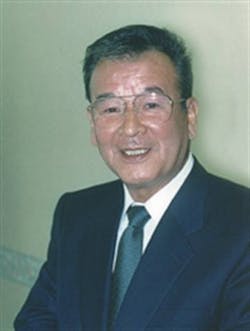Grand designs for a company on the rise: Yokohama explains how it will achieve annual sales growth of 4.8%
Coming off one of its best years in recent memory, Yokohama Rubber Co. Ltd. is forging ahead with some aggressive strategies designed to boost its sales and market share.
In late November, the company unveiled its "Grand Design," which calls for the achievement of at least one turnover of total assets, annual sales growth of 4.8%, and an operating profit-to-net sales ratio of 7.6% in 2005. One month later, Yokohama officially joined Bridgestone Corp. and Continental AG in a joint run-flat development venture.
The Tokyo, Japan-based manufacturer also has promised new passenger and medium truck tires, including a high performance line for the United States market, the AVID H4S/AVID V4S, which will replace its AVID H4/AVID V4 products. And it expects its Fullerton, Calif.-based Yokohama Tire Corp. (YTC) subsidiary to break even this year, having reduced its losses from nearly $80 million in 2000 to $19 million in 2001 (Yokohama's fiscal year runs from April 1 to March 31). Modern Tire Dealer recently discussed Yokohama's future with Hisao Suzuki (in photo), Yokohama's representative executive director, president tire group, and the tiremaker's number-two man, at Yokohama headquarters in Tokyo.
MTD: Yokohama Rubber's net sales in 2002 grew 3.1% over the previous year, the company's first sales increase on a year-to-year basis since 1998. To what do you attribute these gains?
Suzuki: Our overseas export business has increased. Our market share in Japan is increasing every year (Yokohama says it enjoys nearly 21% of the Japan tire market). We want to increase our overseas business by 30%, excluding North America. We are asking Yokohama Tire Corp. to concentrate on increasing Yokohama's brand awareness and Yokohama brand sales in the United States.
(Editor's note: YTC officials later told MTD it plans "to expand and solidify (Yokohama's) image with automotive enthusiasts through existing and new performance motorsports activities.")
MTD: Yokohama Rubber recently announced plans to achieve average sales growth of nearly 5% per year. What role will YTC play in the accomplishment of that goal?
Suzuki: In 2002, YTC improved vs. 2001. They will succeed to sell new products. The RY637 MSC (which was introduced in 2001) improved our truck tire sales. In terms of our high-diameter passenger tire business, we are forecasting very well. America is the biggest market in the world; we expect sales increases.
MTD: How important is the tuner market to Yokohama Rubber's business?
Suzuki: Our inch-up business is increasing from seven to eight years ago. The tuner trend is increasing at replacement and OE.
MTD: Will the coming absorption of Ohtsu Tire & Rubber Co. Ltd. by Sumitomo Rubber Industries Ltd. affect the way Yokohama Rubber does business? Is Yokohama looking to make any acquisitions?
Suzuki: Operation-wise, we don't think there will be a big change due to the merger. We don't have (acquisition) plans.
MTD: Yokohama Rubber will start developing company-owned stores in China this year. Are there plans to establish similar outlets in North America?
Suzuki: I don't think there is room to develop those kinds of stores (in North America).
MTD: Which market has more growth potential: China or the U.S.?
Suzuki: In terms of future possibilities, it would be China. North America and Europe will be major markets for us, too.
MTD: What will Yokohama Rubber contribute to the joint run-flat venture with Bridgestone Corp. and Continental AG?
Suzuki: We will share our run-flat technology. We are expanding our run-flat production capability. (Yokohama's AVS Sport line has run-flat sizes.) When it comes to the mass production stage, we'll share more technology.
MTD: How important are independent tire dealers to Yokohama's success?
Suzuki: We believe the independent tire dealer is the most important sales channel for Yokohama.
MTD: What are the most significant challenges facing Yokohama Rubber?
Suzuki: Passenger and truck tire product innovation is one challenge. Then sales growth will be the next challenge.
"We plan to expand our production capacity in Japan and other Asian countries," says Suzuki. That includes doubling the company's production capacity of 17-inch tires. Yokohama also will initiate production of 21- to 24-inch SUV products this spring.
"In terms of sales, our high performance tire brand (share) will be increased," he adds. The Yokohama brand enjoys 6% of the high performance replacement tire market in the U.S., according to MTD statistics.
Yokohama officials say production gains will be achieved through boosting the efficiency of existing plants -- which includes adding new machinery -- rather than building new ones.



